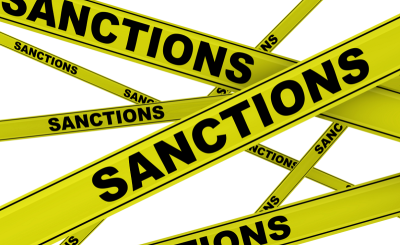Delinking from Dollar Dominated Trade: Circumventing US Sanctions. Iran–Venezuela Energy Cooperation
PressTV Interview

All Global Research articles can be read in 51 languages by activating the “Translate Website” drop down menu on the top banner of our home page (Desktop version).
To receive Global Research’s Daily Newsletter (selected articles), click here.
Visit and follow us on Instagram, Twitter and Facebook. Feel free to repost and share widely Global Research articles.
***
Iran and Venezuela are poised to enter a new era to fight US sanctions. Their cooperation in Hydrocarbons production as well as trade may help them gradually detach from western sanctions.
An idea brought forward in this interview is their joint exit from the dollar-dominated trade economy, by selling their petrol and gas in one or more other currencies than the US dollar or even the Euro. Ideally, they may want to join the Russian move of selling gas for rubles instead of US dollars.
This Russian initiative, of course, has been a major “explosion” in Europe and elsewhere in the world, but most countries eventually accept this new payment mode – one that is totally delinked from the US dollar and its little brother, the Euro.
It is a move away from the SWIFT transfer system which makes countries vulnerable to sanctions, because using SWIFT – the western payment mode — all transfers have to transit via US banks, thus increasing vulnerability to western, mostly US, interferences or sanctions.
After all, still today 84% of all energy used in the world stems from hydrocarbons, as compared to some 87% in the year 2000. And this despite much talk of shunning petrol and gas, the Paris Climate Agenda, and especially propagating a Green Agenda – empty words, manipulating people’s minds towards a new form of capitalism.
Another strategy which both countries are actively considering, is increasingly delinking their trading from the west and orienting their economies towards the east, i.e., the Shanghai Cooperation Organization (SCO), the Eurasian Economic Union (EAEU), the Association of South Asian Nations (ASEAN), uniting 11 Asian countries, plus Russia and China. Earlier this year, Iran has been admitted as a member of the SCO.
These Eastern block economies, together make up for about 50% of Mother Earth’s population and at least a third of the world’s GDP. Becoming part of this union is definitely a decisive step away from western domination and US sanctions.
See Peter Koenig’s Interview (PressTV-PK – video 12 min – 3 May 2022) below.
*
Note to readers: Please click the share buttons above or below. Follow us on Instagram, Twitter and Facebook. Feel free to repost and share widely Global Research articles.
Peter Koenig is a geopolitical analyst and a former Senior Economist at the World Bank and the World Health Organization (WHO), where he has worked for over 30 years on water and environment around the world. He lectures at universities in the US, Europe and South America. He writes regularly for online journals and is the author of Implosion – An Economic Thriller about War, Environmental Destruction and Corporate Greed; and co-author of Cynthia McKinney’s book “When China Sneezes: From the Coronavirus Lockdown to the Global Politico-Economic Crisis” (Clarity Press – November 1, 2020).
Peter is a Research Associate of the Centre for Research on Globalization (CRG). He is also is a non-resident Senior Fellow of the Chongyang Institute of Renmin University, Beijing.
Featured image is from OneWorld

